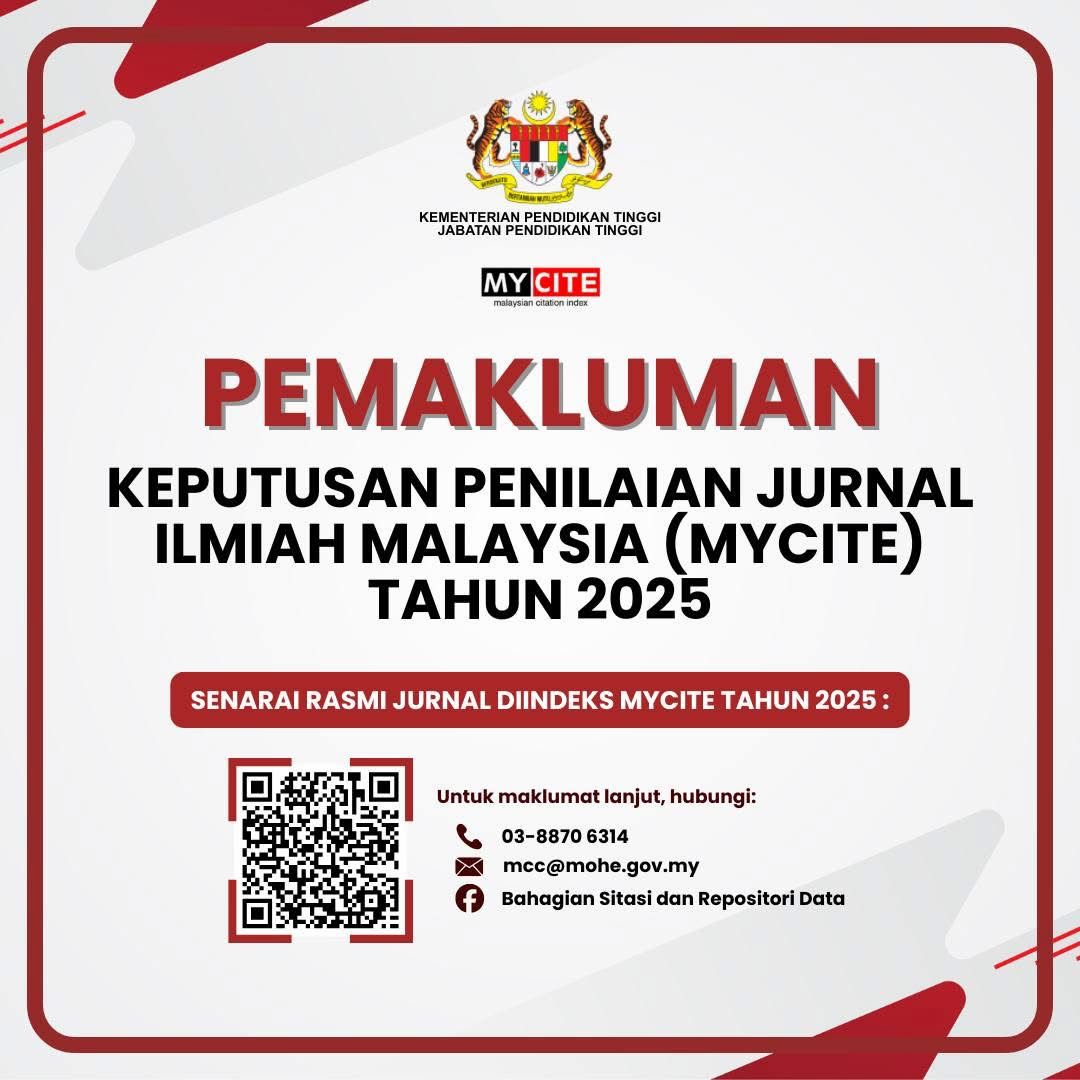The Practice of Hegemony by Lecturers of a Public University in Virtual Classrooms
DOI:
https://doi.org/10.24191/idealogy.v9i2.625Abstract
The ability to control or influence others to follow instructions demonstrates hegemony, or power. In the context of education, the success of teaching and learning often hinges on the power the educators hold in the classroom. However, teaching methods must adapt to varying circumstances. In the era of technology, virtual-teaching platforms have supplanted traditional in-person classroom interactions. This paper aims to explore the challenges lecturers face during virtual classrooms and their strategies in asserting power to address these challenges. The study surveyed lecturers from UiTM Kedah using a questionnaire to gain insight into their experiences and strategies. The results indicated that respondents effectively utilized different bases of power to navigate the challenges of virtual classrooms. The findings also suggest that demonstrating power in a virtual classroom requires diverse and adaptable approaches to ensure the success of the teaching and learning process, ultimately benefiting all students.Keywords: Hegemony, Power, Virtual classrooms, Challenges, Strategies
References
Basem Ali, H. (2013). Teacher Power Bases as Perceived by Secondary (High) School Students: A Field Study at Jerash City, Jordan. European Scientific Journal. (9) 4
Basem Ali, I. M. (2013). Classroom management: Approaches to improving student motivation and achievement. Global Education Journal, 2013(4), 1-11.
Bozkurt, A., Jung, I., Xiao, J., Vladimirschi, V., Schuwer, R., & Egorov, G. (2020). A global outlook to the interruption of education due to COVID-19 pandemic: Navigating in a time of uncertainty and crisis. Asian Journal of Distance Education, 15(1), 1-126.
Cornelius-White, J. (2007). Learner-centered teacher-student relationships are effective: A meta-analysis. Review of Educational Research, 77(1), 113-143.
Dhawan, S. (2020). Online Learning: A Panacea in the Time of COVID-19 Crisis. Journal of Educational Technology Systems, 49(1), 5-22. doi:10.1177/0047239520934018
Dube, M. C. (2021). Online learning challenges postgraduate certificate in education History students faced during COVID-19 at the university of Zululand. Yesterday & Today. (24). DOI:
http://dx.doi.org/10.17159/2223-0386/2020/n24a7
Gini-Newman, G., & Case, R. (2015). Creating thinking classrooms: Leading educational change for this century. Critical Thinking Consortium.
Graham, C. R. (2013). Emerging practice and research in blended learning. In M. G. Moore (Ed.), Handbook of distance education (pp. 333-350). Routledge.
Gurung, S. (2021). Challenges Faced by Teachers in Online Teaching During Covid19 Pandemic. The Online Journal of Distance Education and e-Learning. (9) 1.
Jennings, P. A., & Greenberg, M. T. (2019). The prosocial classroom: Teacher social and emotional competence in relation to student and classroom outcomes. Review of Educational Research, 89(2), 213-248.
Moorhouse, B. L. (2020). Adaptations to a face-to-face initial teacher education course ‘forced’ online due to the COVID-19 pandemic. Journal of Education for Teaching, 46(4), 609-611.
McCroskey, J.C. & Richmond, V. P. 1983. Power in the Classroom: Teacher and Student Perception. http://www.jamescmccroskey.com/publications/l 12.pdf [17 Mei 2015].
Ozer, N. Ugurlu, T. Sincar, M. Yildirim, M,C. &Beycioglu, K. 2014. Teachers’ Power Use in the College Classroom: Turkish Students’ Views. Social and Behavioral Sciences 116:2589 – 2592
Paramasivam, S. (2007). A Discourse-oriented Model for Analysing Power and Politeness in Negotiation Interaction: A Cross-linguistic Perspective. Journal of Universal Language.91 – 127
Reid, L. F., & Kawash, J. (2017). Let’s talk about power: How teacher use of power shapes relationships and learning. Papers on Postsecondary Learning and Teaching: Proceedings of the University of Calgary Conference on Learning and Teaching, 2, 34-41.
Smith, J., Brown, T., & Jones, A. (2021). Teacher perceptions of online teaching during the COVID-19 pandemic: A survey study. Journal of Education and e-Learning Research, 8(2), 123-132.
Sutcliffe, J., & Jackson, C. (2019). The role of relational dynamics in classroom management: Teacher-student relationships and their impact on student behavior. Journal of Classroom Interaction, 54(2), 23-37
Torro, S., Tamrin, S., Sadriani A., Sunra, L., & Kasim, N. (2022) The Correlation Between Teacher's Hegemony and Students' Critical Thinking Skills SHS Web of Conferences 149, 01040 https://doi.org/10.1051/shsconf/202214901040
Taylor, C. (2021). Managing Authority and Power in Virtual Classrooms. Journal of Online Learning and Teaching, 17(2), 50-63.
Thomas, D. (2014). Power in the Classroom. https://www.linkedin.com/pulse/20140609082714-324997647-power-in-the-classroom
[28 September 2014]
Wolff, C.E., Van Den Bogert, N., Henry, P.A., (2015) Keeping an Eye on Learning: Differences
Between Expert and Novice Teachers’ Representations of Classroom Management
Events. Journal of Teacher Education. (66) 1. https://doi.org/10.1177/0022487114549810
Downloads
Published
Issue
Section
License
UiTM Press (the Publisher) has agreed to publish the undersigned author’s paper in Idealogy Journal. The agreement is contingent upon the fulfilment of a number of requirements listed below.
1. The undersigned author warrants that the paper entitled below is original, that it is not in any way libellous or unlawful in Malaysia, that it does not infringe any copyright or other proprietary right. The undersigned hereby represents and warrants that he/she is the author of the paper, except for material that is clearly identified as to its original source, with permission notices from the copyright owners where required. The undersigned represents that he/she has the power and authority to sign and execute this agreement.
2. The undersigned author warrants that the paper entitled below has not been published elsewhere, and also it will not be submitted anywhere else for publication prior to acceptance/rejection by this Journal.
3. By submitting the paper entitled below, the undersigned author agrees to transfer the rights to publish and distribute the paper in an international e-journal (entitled above) to Publisher.
4. The undersigned author agrees to make a reasonable effort to conform to Publisher's submission guidelines and to liaise with the editor to ensure that the requirements of these guidelines are met to a reasonable degree.
5. The corresponding author signs for and accepts responsibility for releasing this material on behalf of any and all coauthors. This agreement is to be signed by at least one of the authors who has obtained the assent of the co-author(s) where applicable. After submission of this agreement signed by the corresponding author, changes of authorship or in the order of the authors listed will not be accepted.




